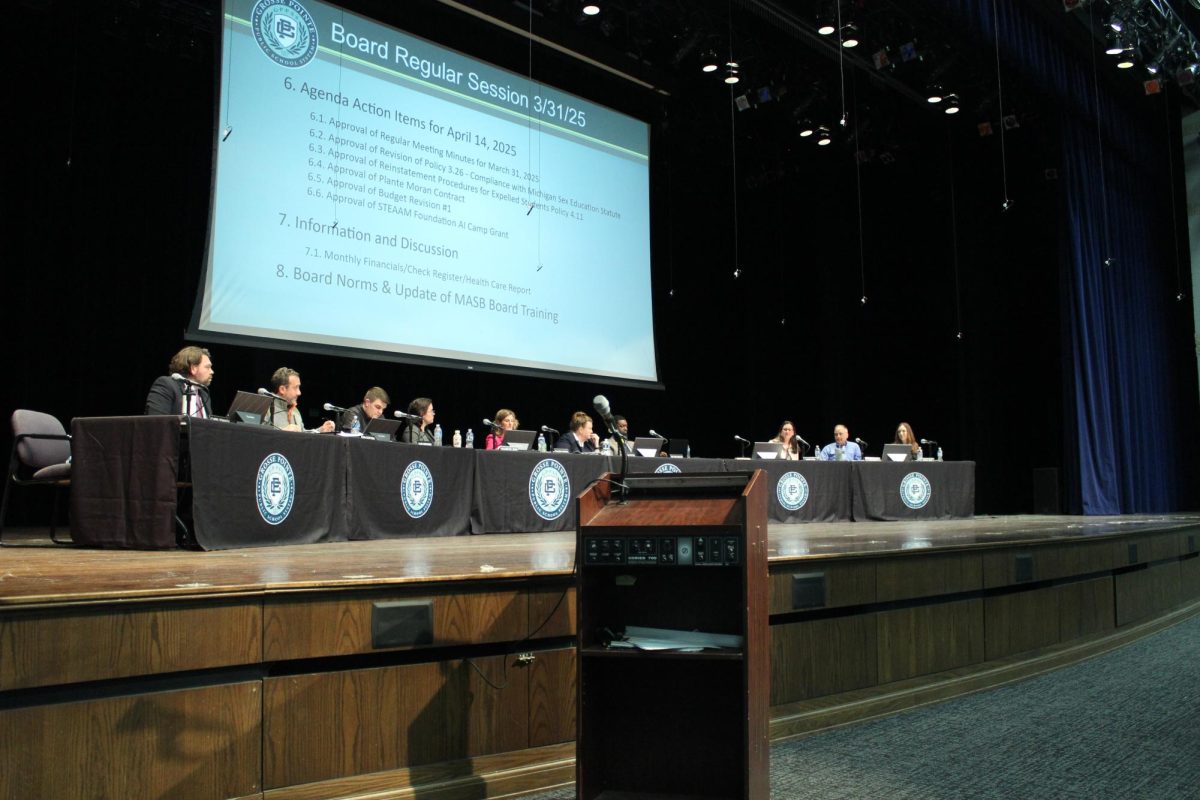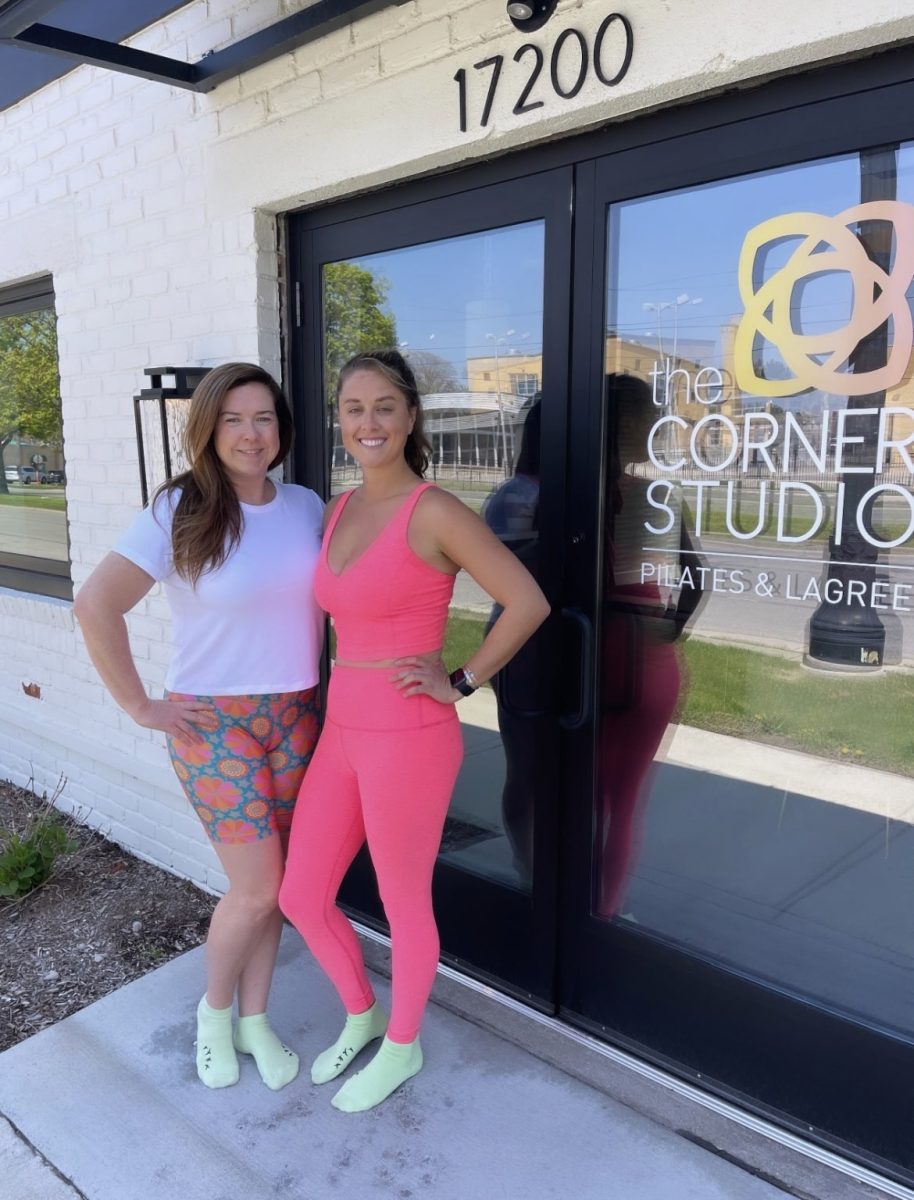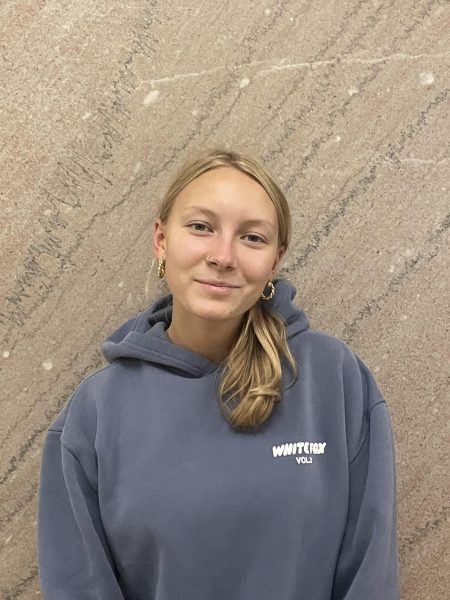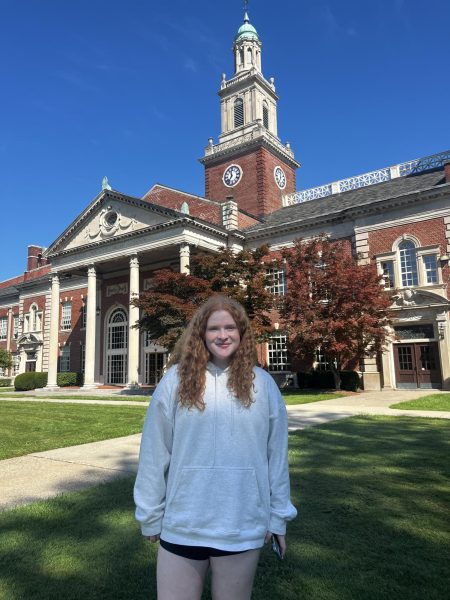With college decision season approaching, the stress for seniors is at an all time high. Early Action and Early Decision results have slowly been released, and while these are exciting times, there are students who have not chosen the college route. There are opportunities for trade school, community college as well as gap years, but most students across the nation seem to take the traditional route- going to college. This being said, the curriculum of Grosse Pointe South is not so focused on preparing students for trade school or other pathways, but rather as college preparatory courses. While this traditionally based curriculum supports students with future plans to attend college, it leaves those other students pursuing different opportunities in the dust.
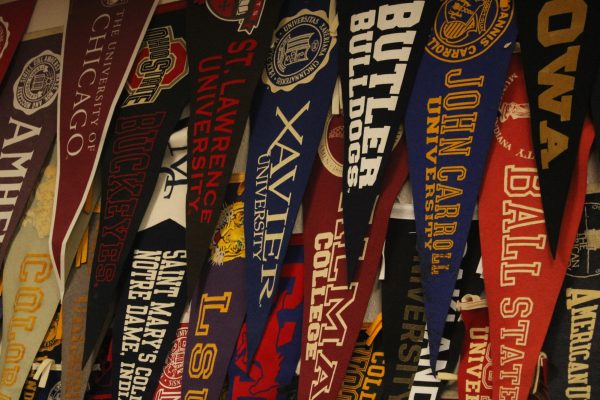
The Grosse Pointe Public School System (GPPSS) curriculum is regarded as intense, with many options of Advanced Placement (AP), honors courses, dual enrollment, and an overall fast and in-depth curriculum. Therefore, students here at South are guided into college-level courses. South offers over 27 AP courses for students to take from sophomore to senior year, as well as the option to do a co-op, an opportunity for students to work jobs during school hours, or dual enrollment, taking college courses, senior year. These accelerated courses help set students up for college-level courses due to their content level, but may fail to take into consideration the stress and mental effects these hasty classes can take on students. Grosse Pointe South Psychologist Lisa Khoury weighs in on the impacts these accelerated courses can have on not only students wellbeing, but also daily life.
“When students are scheduled in too many difficult classes they don’t have much time for other things like sports, work, free time, sleep, friends, downtime, etc,” Khoury said. “When schedules are so packed with difficult academics the stress to get A’s goes up. All of that stress then negatively impacts their mental health, they lose a healthy school-life balance.”
At South many students take on multiple AP courses due to them being greatly accessible. These courses are designed to simulate college level material and pacing, so when students choose AP courses, they are sometimes unaware of the difference between those and the grade level courses they are used to. With courses designed to mirror college trajectories, there is typically not enough time to adjust to this curriculum, and students may find themselves stuck.
“When students become overloaded emotionally, they are more susceptible to getting physically sick. Their anxieties often increase, and their sleep is interrupted or negatively impacted,” Khoury said. “These things can impact attendance which then causes students to fall behind in classes, which further increases anxiety and upset and a vicious cycle begins.”
Khoury reiterates that the key to success when taking these advanced classes is to allow yourself and your priorities to come first.
“Taking care of your mental health is just as important as your physical health,” Khoury said. “If you overload yourself with too many activities and difficult coursework, you run the risk of wearing yourself down both physically and mentally.”
While GPPSS has a more college-oriented approach to learning, there are other schools that stray away from that path, and work to focus on a general post-secondary education approach, rather than a college focus. These circumstances can range anywhere from trade school to a two year associate’s degree. Colleen Schumm, Academy Lead Teacher at Fordson High School explains the different opportunities she shares with her students, and Fordson’s curricular approach to post-graduation.
“What we do stress to our students is that everyone needs a post secondary plan for some type of specialized training that can translate into a career that will help them reach their personal and financial goals post high school,” Schumm said. “This can be earning an associates degree, going to a trade school to complete industry related certifications, earning while they learn on the job in an apprenticeship, and more.”
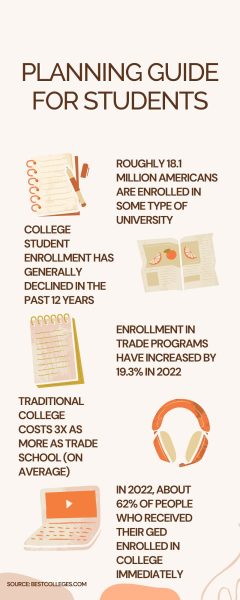
The educators at Fordson focus not only on college pathways, but other education pathways for their students. With many opportunities available for all grades, students at Fordson know they have options.
“At Fordson, we encourage our students to choose a career academy related pathway (Business and Hospitality, Health Sciences, Human Services and Industry and Technology) at the end of their freshman year to help guide their future class choices through the lens of their career goals,” Schumm said. “This can help them choose dual enrollment classes that might be related to their career or steer them towards enrolling in a program at our career center so that they can begin to learn about their potential careers in high school rather than waiting until college. Even if students discover that what they thought they wanted to do is not a good fit for them, we consider that to be positive because they will have saved time and money after high school.”
On top of having support of the curriculum, being exposed to different pathways is an easy way to get students thinking about their future, according to Schumm.
“We host a career day for all of our freshman academy students where the students choose one speaker from each of our academies to learn about a variety of careers, and we have worked to create partnerships with industry to take students to see careers in action in the “real world” by visiting local hospitals, district courts and manufacturing facilities,” Schumm said. “In the fall, we now host a Post Secondary Options Fair instead of a College Fair where we invite not only traditional colleges/universities but also representatives from the skilled trades unions and trade schools as well as employers looking to hire directly from high school for all of our seniors.”
Offering honors classes starting freshman year, the push for accelerated courses among South students is not uncommon. Claire Hathway ’27 has found herself in Honors and AP classes, and shares her opinion about how those courses have helped her succeed.
“I think the South curriculum has shaped my pathway to college by expecting higher levels for me since starting my freshman year,” Hathaway said. “It has always pushed me to be my best and try my hardest.”
With so many difficult courses available, some students may jump to the punch to have as many in their schedule as possible, and while that may work for some students, it does not work for others.
“I think the curriculum is just as challenging as you make it for yourself,” Hathway said. “I think if you have a good schedule and a good way of going about your work and time management, then it is easily manageable. But you have to want to work for yourself.”
Even with such courses set up for the college pathway, some students, such as Nate Michaud ’25, have possibly developed other plans, as he currently is taking EMT courses as Center Line High School.
“I have thought about different pathways post graduation,” Michaud said. “Such as going straight into firefighting so I could start my career earlier. But regardless, I think it’s important to go college if you really want to, as not everyone is fortunate enough to have the opportunity for higher education.”
With so many experiences open to high school students, whatever route taken is sure to lead a student to success, it just depends on their preferences. While Grosse Pointe South is more college-bound oriented, that does not limit the possibilities for graduating students.
“There are a myriad of college and trade school options for every student,” Khoury said. “They don’t need to overload themselves in high school just to get into a college that others tell them they need to get into. I feel like the “big name” colleges often are touted as “the best” but this isn’t the case. Students should consider a program/school that fits their needs, learning styles, and career choices, don’t choose a college because it has a big name. Once you have a degree, employers do not care which college you attended.”

